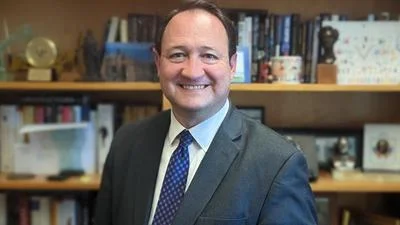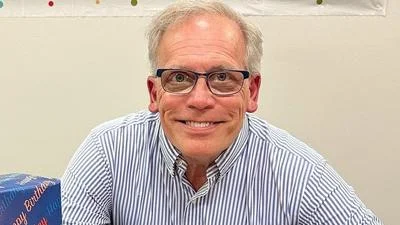Mayor Tom McNamara | City of Rockford, IL Official Website
Mayor Tom McNamara | City of Rockford, IL Official Website
The City of Rockford’s Health and Human Services Department is pleased to announce the availability of Health Literacy Micro-Grant for community-based organizations dedicated to promoting health literacy and COVID-19 adoption within our city. These micro-grants are designed to support initiatives that promote better understanding of health information and empower residents to make informed decisions about their well-being, including accessing the updated COVID-19 vaccine.
"Working directly with community-based organizations that are entrenched in people and parts of our community that are most at-risk for poor health outcomes, has been at the heart of the Advancing Health Literacy Project since our initial application for funding from the federal government,” said Anqunette Parham, Executive Director at the City of Rockford’s Health and Human Services Department. “We are pleased to extend that reach even further, and have the opportunity to spread the critically important message of the importance of health literacy in communities of color, in more creative ways with new, fresh and hopefully innovative approaches. We look forward to what will come out of this process."
Micro-grant Details:
• Application Period: December 11th, 2023 to January 8th, 2024
• Grant Amount: $7,500.00 - $10,000.00
• Eligibility: Open to active community-based organizations within Rockford that have
• previously attended Rockford Ready Health Literacy and Cultural Humility Trainings and
• serve the following zip codes: 61101, 61102 or 61104
Focus Areas for Funding:
1. Health Literacy Promotion: Share information about individual and/or organizational health literacy strategies in Rockford.
2. COVID-19 Vaccination Promotion: Promote the COVID-19 vaccine through program themes like: the science of the vaccine, accessibility of the vaccine, the seriousness of “Long COVID”, the relevance and threat of COVID-19 infection today, how to keep your community safe.
Application Process: Interested organizations can access the application form on the Rockford Ready Initiative’s official website [rockfordready.org]. The deadline for submission is January 8th, 2024. Applications will be reviewed by the Rockford Ready Health Literacy Task Force, and successful grantees will be notified by January 15, 2024.
“Grass root community organizations already have a relationship with the population we are trying to reach, that may not realize the value of their involvement in this initiative,” said Shelton Kay, Rockford Ready Health Literacy Task Force Member. “[This funding opportunity] gives them the opportunity to express themselves in whatever creative ways they may choose.”
Contact Information: For additional information or inquiries regarding the Rockford Ready Micro-Grant, please contact:
Rockford Ready
About the City of Rockford’s Health and Human Services Department:
The Health & Human Services Department of the City of Rockford is the designated public Community Action Agency for Winnebago and Boone Counties. Community Action Agencies exist to break the cycle of generational poverty and to mitigate the immediate effects of poverty on individuals, families and neighborhoods.
About the City of Rockford’s Rockford Ready Initiative:
In partnership with the City of Rockford, the University of Illinois Chicago (UIC), College of Medicine, Office of Health Literacy, UIC College of Medicine Rockford, CURA Strategies and trusted leaders in Rockford, Rockford Ready is a health initiative for the community, by the community.
This program is led by the City of Rockford, in partnership with the University of Illinois Chicago, College of Medicine, Office of Health Literacy and UIC College of Medicine Rockford as well as CURA Strategies. This program is supported by the Office of the Assistant Secretary for Health/Office of Minority Health of the U.S. Department of Health and Human Services (HHS) as part of an award with 100 percent funding by the OASH/OMH/HHS. The contents are those of the author(s) and do not necessarily represent the official views of, nor an endorsement, by the OASH/OMH/HHS. For more information, please visit https://minorityhealth.hhs.gov
Original source can be found here.






 Alerts Sign-up
Alerts Sign-up